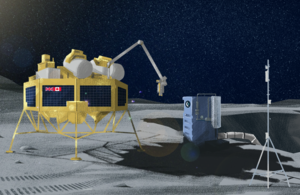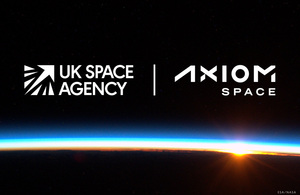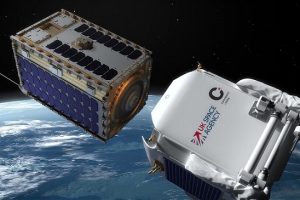It’s an international challenge prize, taking place in collaboration with both the Canadian Space Agency and Impact Canada.
The idea is that it will award UK-led start-ups with seed funding to develop the technologies to purify the buried ice, helping to make human habitation on the Moon viable.
“Technologies developed for space exploration have a successful history of finding new uses on Earth,” said Paul Bate, CEO of the UK Space Agency. “The UK is playing an important role in the NASA-led Artemis Missions, which aim to establish a permanent crewed base on the Moon’s surface by the end of the decade. This will only be possible if astronauts have reliable access to water and it is far better to source that water on the Moon than to send it up from Earth.”
“The Aqualunar Challenge is rewarding the development of technologies that will help make this a reality by purifying the ice that is locked inside the Moon’s soil. While the challenge is focused on developing these technologies for the harsh environment of the Moon, they could also have important uses here on Earth.”
The deadline for entries is 8 April 2024.
In June 2024, the ten most-promising ideas will be rewarded with seed funding of £30k each to develop their ideas. Next, in March 2025, three teams will be named winner and runners up, sharing an additional £300k to further develop their systems. (Half the prize total will be awarded to UK-led teams, and half to Canadian-led teams).
To enter the challenge in the UK, visit aqualunarchallenge.org.uk (Canadian-led teams should apply here).
“To survive on the Moon, astronauts will need water to drink and to grow food,” said Holly Jamieson, Executive Director of Challenge Works, which will help run the competition.
“Water molecules – H2O – can also be split to produce oxygen to make breathable air and hydrogen for fuel. For a long-term lunar base to be viable we will need alternatives to sending deliveries of water, food, air and fuel in rockets from Earth. The Aqualunar Challenge is calling on innovators, start-ups, scientists, academics, engineers and problem solvers to submit their ideas – whether they have worked in the space sector previously or not.”
See also: UK Space Agency allocates £50m for satellite comms projects
 Electronics Weekly Electronics Design & Components Tech News
Electronics Weekly Electronics Design & Components Tech News




